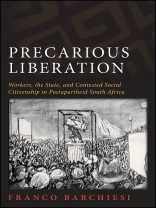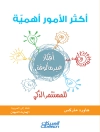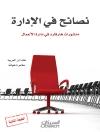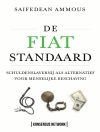Examines the relationship of precarious employment to state policies on citizenship and social inclusion in the context of postapartheid South Africa.
Winner of the 2012 CLR James Award presented by the Working Class Studies Association
Millions of black South African workers struggled against apartheid to redeem employment and production from a history of abuse, insecurity, and racial despotism. Almost two decades later, however, the prospects of a dignified life of wage-earning work remain unattainable for most South Africans. Through extensive archival and ethnographic research, Franco Barchiesi documents and interrogates this important dilemma in the country’s democratic transition: economic participation has gained centrality in the government’s definition of virtuous citizenship, and yet for most workers, employment remains an elusive and insecure experience. In a context of market liberalization and persistent social and racial inequalities, as jobs in South Africa become increasingly flexible, fragmented, and unprotected, they depart from the promise of work with dignity and citizenship rights that once inspired opposition to apartheid. Barchiesi traces how the employment crisis and the responses of workers to it challenge the state’s normative imagination of work, and raise decisive questions for the social foundations and prospects of South Africa’s democratic experiment.
Table des matières
List of Illustrations
Preface and Acknowledgments
Note on South Africa’s Racial Terminology
Introduction
The Promise of Wage Labor in South Africa’s Democratization
The Nexus of Work and Social Citizenship as a Contested Field of Signification
Work and Citizenship in Postcolonial and Postapartheid
Modernity
Conclusion and Summary of Chapters
1. Redeeming Labor: From the Racial State to National Liberation
Introduction
‘Schooling Bodies to Hard Work’: Labor, Modernity, and the Policy Discourse of the Racial State
The Hopes and Disappointments of an Inclusive South Africanism
Apartheid Social Engineering and the Coercive Enforcement of Wage Labor Discipline
Black Workers’ Struggles and the Redemption of Wage Labor, 1973–1994
Conclusion
2. The Work-Citizenship Nexus of Postapartheid South Africa
Resistance Is Futile: The Governance Project of the ANC in the ‘New South Africa’
The Changing Face of Precariousness
Building the Patriotic Worker: The Democratic
Constitutionalization of Wage Labor
Conclusion. Disciplining Citizenship
3. Contesting Commodification: Social Policy Debates in the Crisis of Waged Employment
Introduction: Governing in the Shadow of Precariousness
Social Policy as a Technology of Self-Responsibility
‘Laudable Citizens’ and ‘Silly Fools’: Work, Families, and the Developmental Social Welfare Idea
‘The Wage-Income Relationship Is Breaking Down’:Basic Income and Contested Decommodification
Conclusion: Precarious Employment as the New ‘People’s Contract’?
4. The Changing World of Work in Gauteng
Introduction: Dreaming of Modernity in the ‘Place of Gold’
Ity of Industry: The East Rand/Ekurhuleni and the Promise of Work
Economic Restructuring and Employment Decline: The East Rand in Transition
Johannesburg Municipal Workers and the Corporatization of Local Service Delivery
Conclusion: Invisible Workers and the Discursive Production of Postapartheid Spaces
5. Translation Troubles: Signifying Precarious Work on the Shop Floor
Introduction
Coping with ‘Something Strange’: The Disappointments of Workplace Transformation in East Rand Factories
New Canaan, New Egypt: Workplace, Community, and Identity among Johannesburg Municipal Workers
‘We Feel Sort of Redundant’: Surviving the Flexible Workplace
Entrepreneurs of the Self: Individual Strategies and Life after Waged Employment
Conclusion
6. ‘ Like a Branch on a Rotten Tree ‘ : Recovering Agency after Wage Labor
Introduction
Commodification and the Reconfiguration of Workers’ Lives
A Future Unlike It Used to Be: Visions of the Apocalypse and Labor’s Politics of Melancholia
The Fog of Activism: Working-Class Agency and the Uncertain Quest for Citizenship Alternatives
Conclusion
Conclusion
Appendix on Methodology
Notes
Bibliography
Index
A propos de l’auteur
Franco Barchiesi is Assistant Professor in the Department of African-American and African Studies at the Ohio State University. He is the coeditor (with Tom Bramble) of Rethinking the Labour Movement in the ‘New South Africa.












